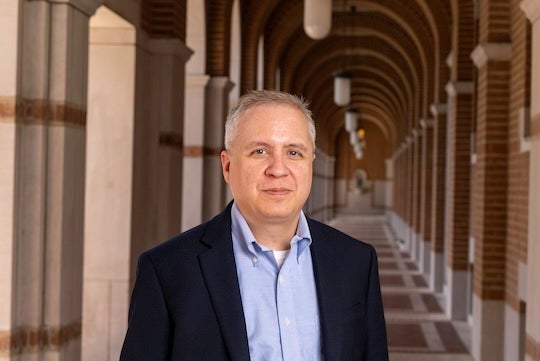Fred Oswald, the Herbert S. Autrey Professor of Psychological Sciences and professor of management at Rice University, represented Rice at “AI in Postsecondary Education Working Session: Advancing AI Together,” an event hosted by the U.S. Department of Education at the Eisenhower Executive Office Building in Washington June 17.
The daylong event was attended by artificial intelligence (AI) innovators from academic institutions throughout the U.S. It kicked off with a welcome from DOE representatives James Kvaal, a department under secretary, and Roberto Rodriguez, assistant secretary for the Office of Planning, Evaluation and Policy Development, followed by a keynote address from Arati Prabhakar , director of the White House Office of Science and Technology Policy and assistant to the president for science and technology.
“Director Prabhakar’s talk focused on how AI technologies are becoming highly consequential to education, offering greater learning opportunities for students and training opportunities for educators,” Oswald said. “She also stressed the importance of balancing associated risks with AI technologies and moving forward with the benefit of expertise in education, so the U.S. can stimulate a competitive economy in its strategic use of AI in the education space.”
Oswald joined participants in a series of roundtable discussions to share expertise and discuss a number of topics, including implications for enrollment, admissions and advising; teaching, learning and support services; responsible innovation and equitable implementation of AI technologies; and more. There were also breakout sessions focusing on assessment and instruction, student experiences and services and skills and the workforce.
Oswald, whose expertise and research focuses on AI and workforce development, notes how students need to develop AI skills to maximize their employment potential.
“Just like we would like to see financial literacy in students, which isn’t usually taught in the classroom, maybe the same is true for AI literacy,” Oswald said. “We may need to make it a part of the culture in institutions of higher learning so that both faculty and students can navigate today’s world of AI successfully.”


